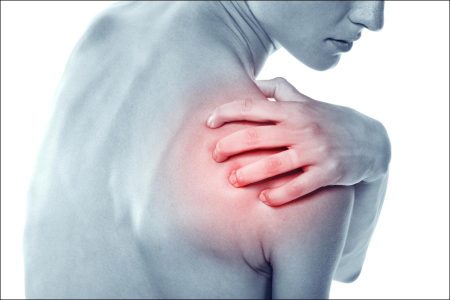The physical condition of a muscle is determined by its freedom from fatigue, its temperature, its stores of energy foodstuffs, its state of training and its ability to recover from bouts of work. Fatigue reduces the excitability, power and extent of contraction of muscle. Unless the stimulus is great fatigue reduces the number of fibers which respond in repeated muscular contractions. Such reduction in the number of contractile elements reduces the power of the contractions.
The range of each contraction is also diminished by fatigue due to the reduction in the number of fibers stimulated and to the reduction in the amount of shortening of ach fiber. Muscular contraction is most rapid and most powerful when the temperature of the muscle fibers is slightly warmer than the normal body temperature. In this slightly warmed condition the muscle viscosity is lowered, the chemical reactions of contraction and recovery are more rapid and circulation is improved.
Excessively high temperatures overcome the capacity of the body for circulatory adjustments and also may destroy the tissue proteins. Temperatures below the normal body temperature increase the viscosity, making the muscles stiff and sluggish. The relaxation phase of muscular action is especially affected by cold and this results in a loss of coordination and increases the liability of rupture of the fibers in muscles acting as antagonists in rapid movements.
If stores of muscle glycogen and phosphocreatine are diminished by starvation or prolonged work without adequate feeding, the elements essential for contraction are consumed in the metabolic processes and the amount of contractile tissue is reduced. Muscular weakness is one of the first symptoms in starvation.
The strength of contraction of muscle fibers is increased by programs of physical training. Training not only increases the size of muscle fibers but improves the condition of the contractile elements as well. Lack of use of muscles decreases the size of the fibers and increases the proportion of fat in the muscle tissues. The contractile strength of each fiber is diminished by disuse.
The ability to recover from a bout of work is dependent upon the supply of oxygen to the muscle tissue, the rate of removal of carbon dioxide and other wastes, the provision of energy foodstuffs and the replacements of minerals and other elements expended in muscular work. The circulation must be adequate to carry these materials to and from the working muscles.
As the circulation becomes inadequate, metabolites collect in the muscle and impair its activity and the tissues run short of energy and nutrient materials. The trained muscle recovers more quickly because smaller amounts of metabolites are formed and these are more rapidly removed by circulation.
Hits: 102
